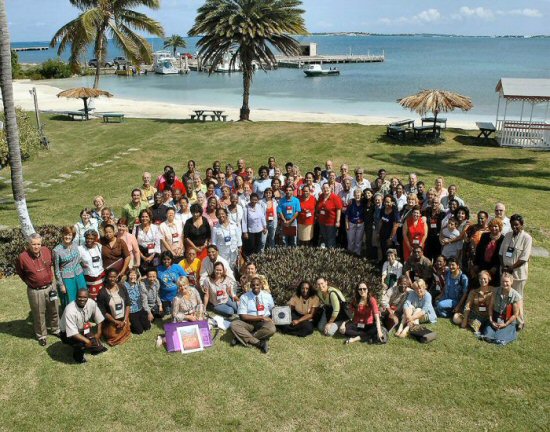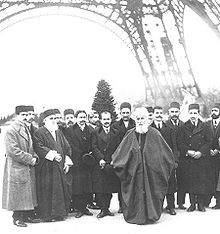arthra
Baha'i
Baha'i community in Turkey:

Didem Akyüz
Adana
Yaşadığım şehirde düzenli olarak yapılan birçok çocuk sınıfı vardır. Çok istememe rağmen uzun bir süre hiç cesaret edemedim bir çocuk sınıfı oluşturmaya. Ta ki sınıflardan birinin öğretmeni beni arayıp yardım isteyene kadar… Sınıfının çocuk sayısı fazlaydı ve benimle birlikte yapmak istediğini söyledi. Hiç düşünmeden “tamam” dedim. Çünkü biliyorum ki tüm çocukların ihtiyaçlarıyla ilgilenip onlara ruhani yetilerini geliştiren, asil ve dürüst bir karakterin temellerini atan bu dersler hem çocuklar hem de içinde yaşadıkları toplumlar için çok önemlidir. Ve ben de bu çabanın bir parçası olmayı çok istiyordum. Sonra içimi bir telaş kapladı, “Çocuklar acaba beni severler mi?” “Çocukların hassas kalp ve akıllarını besleyen bir ders yürütebilecek miydim?” Yol boyunca aklımda bu gibi sorularla sınıfın yapılacağı eve ulaştım. Öğretmenleriyle içeri girip çocukları görene kadar bu endişem devam etti, sonra o endişe yerini tarifi olmayan bir duyguya bıraktı…
Çocuk S?n?flar?

Didem Akyüz
Adana
Yaşadığım şehirde düzenli olarak yapılan birçok çocuk sınıfı vardır. Çok istememe rağmen uzun bir süre hiç cesaret edemedim bir çocuk sınıfı oluşturmaya. Ta ki sınıflardan birinin öğretmeni beni arayıp yardım isteyene kadar… Sınıfının çocuk sayısı fazlaydı ve benimle birlikte yapmak istediğini söyledi. Hiç düşünmeden “tamam” dedim. Çünkü biliyorum ki tüm çocukların ihtiyaçlarıyla ilgilenip onlara ruhani yetilerini geliştiren, asil ve dürüst bir karakterin temellerini atan bu dersler hem çocuklar hem de içinde yaşadıkları toplumlar için çok önemlidir. Ve ben de bu çabanın bir parçası olmayı çok istiyordum. Sonra içimi bir telaş kapladı, “Çocuklar acaba beni severler mi?” “Çocukların hassas kalp ve akıllarını besleyen bir ders yürütebilecek miydim?” Yol boyunca aklımda bu gibi sorularla sınıfın yapılacağı eve ulaştım. Öğretmenleriyle içeri girip çocukları görene kadar bu endişem devam etti, sonra o endişe yerini tarifi olmayan bir duyguya bıraktı…
Çocuk S?n?flar?













